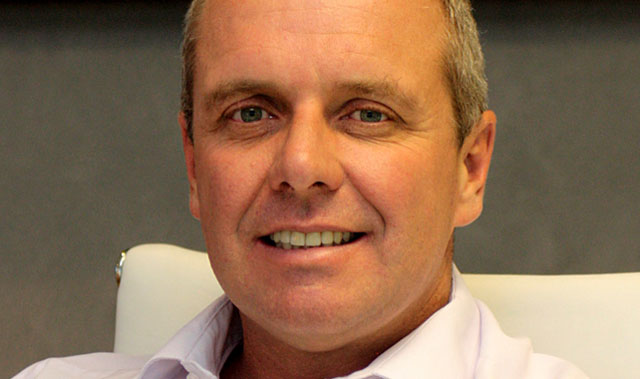
The new, national broadband network to be built by telecommunications specialists Comsol will extend to more than 200 towns and cities across South Africa and will use the latest high-frequency wireless technologies to provide speeds of up to multiple gigabits per second, according to the man behind it.
Iain Stevenson, the CEO and founder of Comsol, revealed this week that Nedbank Corporate and Investment Banking is buying a 25% stake in the company, joining shareholder Convergence Partners. It will spend more than R500m in the next 12 months expanding the network across the country. The Industrial Development Corp has also committed funding.
The new business, called Comsol Fibre Connect, intends using a combination of fibre (mainly for backhaul) and high-frequency wireless spectrum (mainly for the last mile) to connect businesses across South Africa, replacing the need for leased lines and other solutions that Stevenson believes have become antiquated. He describes the planned network as the “first and only nationwide, open-access, high-speed, carrier-grade data network”. Though the focus is on businesses to start, residential homes could follow, he told TechCentral.
But how is the company going to do it, especially since other networks of national scope, built by companies such as Vodacom and MTN, have cost tens of billions of rand to deploy?
Stevenson said there are two factors that allow Comsol to keep its costs down while still building expansive coverage.
The first is that it will take advantage of existing infrastructure, including the many thousands of kilometres of fibre that have been deployed countrywide by the private sector in recent years. It will “backhaul” its traffic over these fibre lines – and use high-capacity microwave where fibre doesn’t exist – into the three regional data centres operated by Teraco. It’s leasing capacity from Neotel, Telkom and FibreCo.
Existing infrastructure
It also intends installing capacity on existing high sites owned by the mobile operators and others, and will also utilise its own towers already built. “We are overlaying our infrastructure on top of infrastructure that already exists. If you had to build this network from scratch, you’d need tens of billions of rand.”
Stevenson said Comsol, which has almost 20 years of experience in helping other companies build wireless infrastructure, already has the teams on the ground – even in remoter parts of South Africa – to allow it to expand the new network countrywide at a rapid pace.
Unlike most wireless broadband providers, which use relatively low frequencies (longer wavelengths) to provide services to end users, Comsol will use a vast chunk of contiguous spectrum – 280MHz in all – that it has licensed access to around the 28GHz band. Interestingly, it’s a band looks set to be popular for next-generation 5G technologies, which are expected to be rolled out in the coming years. Icasa licensed the spectrum to Comsol long before it became a focus point for the 5G community.
We are going to Kuruman, to Nelspruit, Ladysmith, Bloemfontein, Kimberley… We’re going up the coast of KwaZulu-Natal
Because of the high frequencies used, customers must have equipment installed at their premises with line of the sight to the nearest tower, Stevenson said. “Multi-tenanting” options are available, so a shopping centre, for example, could install one piece of equipment on the roof, and then distribute a 1Gbit/s pipe over fibre to all the shops interested in access.
Stevenson is promising to extend coverage to areas where none exists today, or where there are few options to choose from. Comsol has worked closely with specialist telecoms consultancy BMI-TechKnowledge to develop heat maps to see where businesses are located, where fibre can be used to connect high sites nearby and what the opportunities are.
“We are going to Kuruman, to Nelspruit, Ladysmith, Bloemfontein, Kimberley… We’re going up the coast of KwaZulu-Natal,” he said. “Of course, there’ll also be blanket coverage in Gauteng and the major metros.”
The company intends offering a full service-level agreement for businesses within 6km of one of its high sites, providing a symmetrical 1Gbit/s service (less speedy, less pricey options will also be on offer, with pricing for an uncapped and uncontended service starting at about R3 000/month).
Each high site will be backed up with redundant power to ensure Comsol can continue offering uninterrupted services for up to two days without a supply from the electricity grid.
He said a broadband option for consumers is also under consideration. “We’re not ruling it out, on the back end of this type of service. But the home market requires a service for under R1 000, and the backhaul costs are hampering that at the moment.” — © 2016 NewsCentral Media

